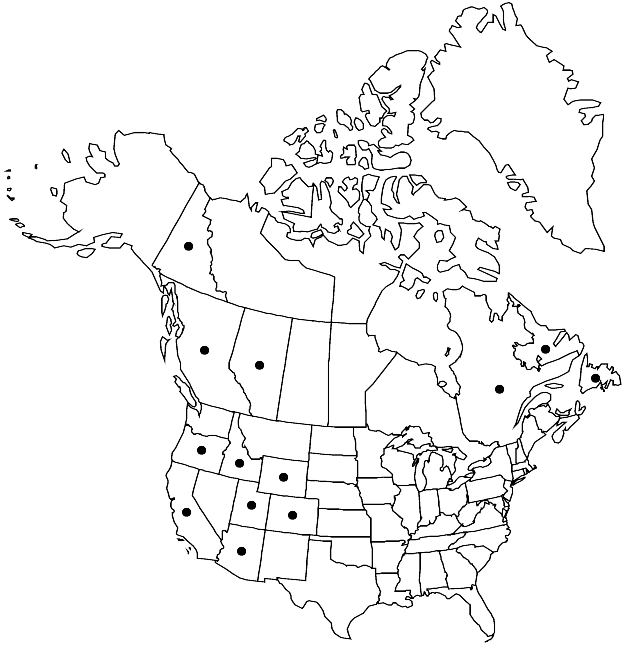Difference between revisions of "Pseudoleskea radicosa var. compacta"
Bull. Torrey Bot. Club 27: 231. 1900.
Synonyms: Lescuraea radicosa var. compacta (Best) E. Lawton Pseudoleskea pallida
Treatment appears in FNA Volume 28. Treatment on page 360.
imported>Volume Importer |
imported>Volume Importer |
||
| Line 54: | Line 54: | ||
|publication year=1900 | |publication year=1900 | ||
|special status= | |special status= | ||
| − | |source xml=https:// | + | |source xml=https://bitbucket.org/aafc-mbb/fna-data-curation/src/2e0870ddd59836b60bcf96646a41e87ea5a5943a/coarse_grained_fna_xml/V28/V28_563.xml |
|genus=Pseudoleskea | |genus=Pseudoleskea | ||
|species=Pseudoleskea radicosa | |species=Pseudoleskea radicosa | ||
Latest revision as of 21:36, 5 November 2020
Plants small, bright green. Stems with apices not distinctly hooked, branches many. Leaves often somewhat incurved, appressed, not falcate-secund, strongly concave, 2-plicate, 0.8–1.3 mm; apex abruptly acute to short-acuminate; medial laminal cells pellucid.
Phenology: Capsules mature Jun–Aug.
Habitat: Dry siliceous boulders, calcareous rock, mineral soil, subalpine-alpine
Elevation: moderate to high elevations (900-4000 m)
Distribution

Alta., B.C., Nfld. and Labr., Que., Yukon, Ariz., Calif., Colo., Idaho, Oreg., Utah, Wyo., n Europe.
Discussion
Variety compacta is distinctive and may be a good species, distinguished by its bright green color, small size, ovate concave leaves that often incurve when dry, and clear laminal cells.
Selected References
None.
Lower Taxa
None.